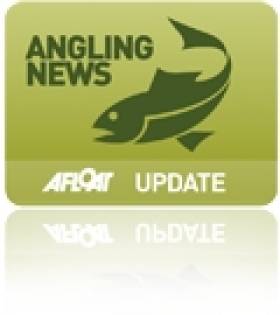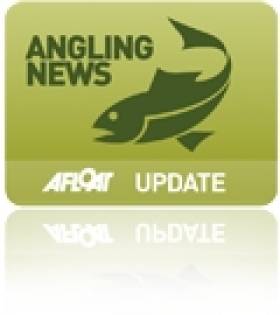Displaying items by tag: River Feale
Angling News: Call For Submissions On Lough Sheelin Bye-Law, More Info For River Feale Season
#Angling - Inland Fisheries Ireland (IFI) is seeking submissions from interested parties in relation to a proposal to introduce a bye-law defining a closed season for angling for any species on Lough Sheelin in the Shannon River Basin District (No 8 District).
The proposal currently under consideration is to seek the Minister of State at the Department of Communications, Energy and Natural Resources to introduce a bye-law on Lough Sheelin to close the lake to angling for any species from 13 October to the end of February in the following year.
IFI may, as part of the process, arrange a public consultation meeting if deemed necessary, but all submissions must be received in writing and will be published on the IFI website.
Submissions may be sent by email to [email protected] or by post to:
The Director,
Inland Fisheries Ireland,
Ashbourne Business Park,
Dock Road,
Limerick
V94 NPEO
The public consultation period will run for another three weeks with the closing date for receipt of submissions set at 5pm on Wednesday 16 March.
In other angling news, the River Feale (including Rivers Galey and Brick) will be open for salmon fishing on from next Tuesday 1 March till midnight of Friday 30 September.
Under the salmon tagging regulations, in 2016 the River Feale is designated as a 'brown tag' fishery. The brown tags for the River Feale bear the code B3.
Anglers must affix a brown tag along with a blue tag to any salmon which is retained. This means that salmon retained on the River Feale will have two tags attached.
Brown tags will issue from IFI officers only for the 2016 season. Please ring 087 763 9236 to arrange to meet and receive your first brown tag, as well as any additional tags needed (upon verification that the previous tag has been used, i.e. a fish has been caught and recorded in the logbook).
Only one brown tag will be issued at a time to each angler. If an angler has used their brown tag or doesn’t have a brown tag in their possession to use then they must fish by catch-and-release methods (single barbless hook and no worms).
Brown tags will continue to be issued until the angling quota is reached. National regulations apply and are available in the Wild Salmon and Sea Trout leaflet.
For any queries refer to the relevant IFI webpage or contact the Limerick office at [email protected] or 061 300 238.
Limerick Salmon Anglers Hail Net Fishing Ban On River Feale
#Angling - The battle to stem the decline of salmon stocks in Ireland's inland waterways has taken a step forward in Limerick with the news that net fishing on the River Feale will be banned from the end of July.
As the Limerick Leader reports, the end of licensed net fishing on the Feale - and important salmon spawning watercourse that flows from the Mullaghareirk Mountains in Cork through Limerick and Kerry to the mouth of the Shannon - has been welcomed by local stakeholders as "a vital step towards restoring depleted fish stocks on the embattled river".
Salmon stocks in the Feale alone have reportedly collapsed by more than 10,000 in just six years.
Local angler Brendan Danagher said that the decision to ban net fishing would also encourage anglers to accept other restrictions for conservation on the river - which include a maximum catch of one fish per person per day, with a total of three catches allowed per individual till the end of the season.
“If they’re bringing in new bylaws, they must have the goodwill of anglers," he added.
The Limerick Leader has more on the story HERE.
IFI Repeats Concerns Over Aran Islands Fish Farm
#Angling - Anglers on the River Feale in Kerry and Limerick have been assured by Inland Fisheries Ireland (IFI) that it supports their concerns over the proposed deep-sea fish farm in Galway Bay, as the Limerick Leader reports.
Local anglers are among those throughout the region who have rallied in opposition to plans for the Aran Islands fish farm project, over fears that it would lead to “an explosion” in parasitic sea lice which would prey on wild inland salmon from Irish rivers feeding in the North Atlantic.
IFI reiterated its statement issued last month in which its board said it does not believe "that the corpus of peer reviewed international scientific literature which recognises the negative impacts of sea lice on salmonids have been adequately dealt with" in the Environmental Impact Statement prepared by Bord Iascaigh Mhara (BIM) as part of the public consultation process.
A spokesperson for IFI told the Limerick Leader that the authority has "major concerns about the location and scale [of the farm], as well as its potential impact on sea life. [IFI] is not supporting it in its current form.”
Earlier this month the National Inland Fisheries Forum also criticised as "flawed" the consent process regarding the 15,000-tonne organic salmon farm planned off Inis Oirr, which would be the largest of its kind in Europe.
If approved, the operation could more than double Ireland's current production rate of farmed salmon.
The Limerick Leader has much more on the story HERE.






























































